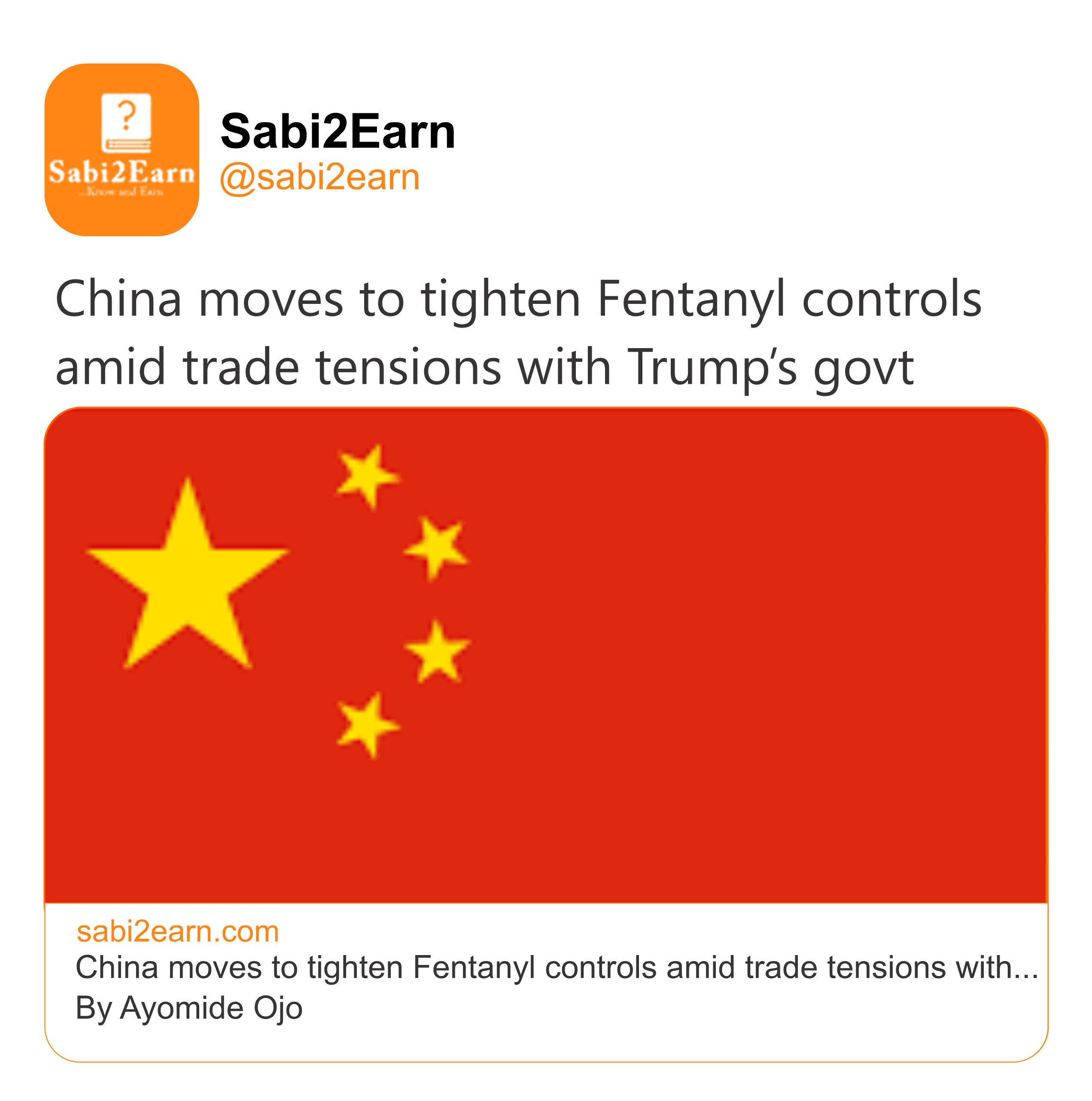China moves to tighten Fentanyl controls amid trade tensions with Trump’s govt
China has taken new steps to control the export of synthetic opioid precursors as tensions with the United States escalate over the deadly fentanyl crisis, which has claimed tens of thousands of lives annually across America.
The move follows US President Donald Trump’s decision earlier this year to impose a 20% tariff on all Chinese imports part of a broader crackdown on Beijing’s alleged role in sustaining the flow of fentanyl into the country. Despite initial pushback, Chinese authorities now appear to be signaling a willingness to expand cooperation.
Late last month, Beijing added two additional fentanyl precursors to its list of controlled substances, aligning with international standards. Days earlier, it extended similar control to nitazenes, another class of potent synthetic opioids. Chinese Minister of Public Security Wang Xiaohong also told US Ambassador to China David Perdue that Beijing was open to strengthening “practical cooperation” on drug control.
Although China maintains that it has already made “tremendous” efforts to tackle the issue, officials continue to reject Washington’s use of pressure tactics. “We stand ready for practical cooperation with the US based on equality and mutual respect. That said, we firmly oppose the US pressuring, threatening and blackmailing China under the pretext of the fentanyl issue,” a Chinese spokesperson said in March.
While the Biden administration previously acknowledged Beijing’s efforts in 2019 to list fentanyl as a controlled substance—a move that led to a decline in direct shipments from China—Trump’s renewed tariffs have reignited tensions. Critics argue the new administration failed to credit China’s ongoing compliance with international regulations, instead resetting diplomatic progress.
In recent years, drug traffickers have shifted tactics. Rather than shipping fentanyl directly, Chinese suppliers now send precursor chemicals to cartel-run labs in Mexico, where the drug is manufactured and smuggled into the US. Despite China’s added restrictions on these chemicals, experts say more needs to be done.
“Scheduling drugs and precursors… is one step of many needed in China,” said David Luckey, a senior researcher at RAND Corporation. “Better still would be actually preventing Chinese companies from selling and distributing these harmful chemicals and drugs to criminal organizations in Mexico.”






